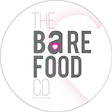We wouldn’t be able to do Operation Bare Food on our own. That’s why we’ve got a helping hand from different people to do with fitness and food. One of these people is Ciara Ryan of Ciara Ryan Nutrition. She’s advised our leaders on their food as well as us. Here she gives us five tips for a healthier diet…
1. Ditch the sugar and the processed food
The harmful effects of added sugar has been documented over and over, yet it’s worth repeating that the body is designed to only allow a very small amount of sugar into the bloodstream at any one time (around 1-2 teaspoons). If we eat any more than this, insulin is produced to transport the sugar out of the bloodstream. Through a series of steps, this excess sugar then gets converted to fat.
The WHO (World Health Organisation) recommends no more than six teaspoons of added sugar per day. The average Irish person has four times this amount.
To put this into context, if you drank one can of Coca-Cola per day you are over your limit. If you had a portion size of Crunchy Nut Cornflakes for breakfast and a Muller Light Strawberry Yogurt mid-morning, you reached your limit of sugar for the day.
Your body processes whole foods much differently than it does refined, processed, and heavily modified “junk” foods. Processed foods tend to over stimulate the production of dopamine, also known as the “pleasure” neurotransmitter, which makes you want to eat more. This can lead to weight gain and inflammation and can wreak havoc on your digestive tract and your mood. Real foods will actually rot or grow mould while fake, processed foods remain largely the same in appearance and shape no matter what their age.
2. Eat more plants
When we say plants we particularly mean the green type. Vegetables give your body a cocktail of compounds that help to support the immune system, promote energy production, regulate digestive health, reduce sugar cravings and slow down the aging process. Try to include them in each meal (remember you can juice and blend them too) and also to get a wide variety – the fresher and more colourful the better.
3. Spice it up
I recommend using spices and herbs for several reasons. They offer a multitude of health benefits ranging from anti-inflammatory and antibacterial properties to antioxidant and antiviral benefits. The scientific evidence is particularly strong for turmeric, garlic, cinnamon, and ginger. Using herbs and spices in your cooking is also a great way to add flavour and aroma without resorting to artificial chemical-laden processed foods.
4. Don’t fear the fats
Thankfully, it seems people are finally starting to wake up as compelling research demonstrates that low fat isn’t all it’s cracked up to be. There’s no need to be completely fat-phobic. Fat is a major component of your cell membranes. Your brain is mostly made of fat and your cell membranes need fat to stay permeable, allowing nutrients to enter. Fat is also critical to help your body absorb certain vitamins and nutrients, such as CoQ10 and vitamins A, D, E, and K.
What is important is the type of fat you eat, so out goes refined vegetable oils and hydrogenated/trans fats and focus on consuming more oily fish such as mackerel, salmon, and sardines. Seeds and their oils and avocados are also good.
5. Improve your ‘Gut Health’
‘Gut Health’ covers many aspects of the gastrointestinal tract, such as digestion and absorption of food, good intestinal bacteria, effective immune status and general state of well-being. If your gut is working effectively, you’re on the road to good health.
A good place to start is the actual process of eating. The digestive system is a fine-tuned machine – if you inhale your food instead of chewing it, you’re making tough work for your stomach and setting the ground for incomplete digestion. This creates a feeding ground for the ‘not so good’ bacteria in our gut resulting in bloating, wind and other discomforts.
So please slow down, sit down and chew!
Want more nutrition tips? Do you want to have a healthier diet? Visit Ciara’s website CiaraRyanNutrition.com

